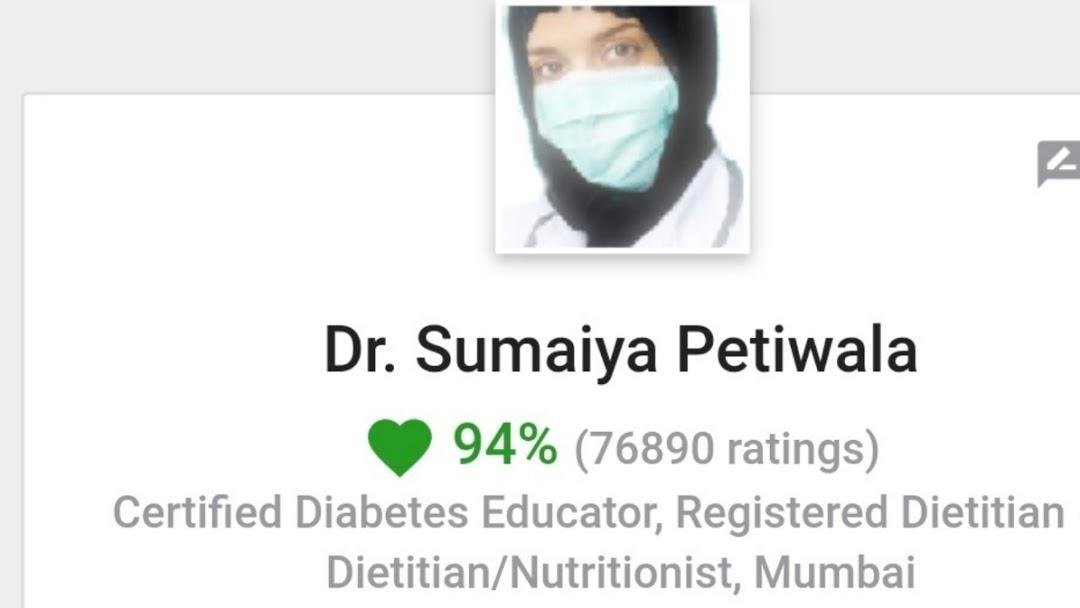By Dr Sumaiya Petiwala, Registered Dietitian
In a world driven by quick results, weight loss often becomes a race against time. Many individuals equate shedding kilos with extreme calorie restriction, skipping meals, or adopting fad diets that promote starvation rather than nourishment. But at Dr Sumaiya NutriCare Clinic, I always advocate for a more sustainable and holistic approach: weight loss through smart, mindful eating—not by depriving your body.
Hunger is Not the Answer
Let me make one thing very clear—hunger is not a weight loss strategy. In fact, persistent hunger can lead to a cascade of adverse effects:
- Slow metabolism
- Loss of lean muscle
- Nutrient deficiencies
- Hormonal imbalances
- Episodes of binge eating or food obsession
When you skip meals or eat too little, your body switches into survival mode. It begins to store fat instead of burning it, thinking famine is around the corner. This is the opposite of what you want.
Fuel Your Body, Don’t Fight It
The key to effective and lasting weight loss is eating right. That means focusing on:
- Whole foods: fresh vegetables, seasonal fruits, whole grains, legumes, nuts, and seeds
- Balanced meals: adequate protein, healthy fats, and complex carbohydrates at each meal
- Mindful eating: listening to your hunger cues and eating slowly without distractions
- Hydration: drinking sufficient water throughout the day
- Portion control, not food elimination
These principles ensure your body receives the nutrients it needs to function optimally, burn fat efficiently, and maintain high energy levels throughout the day.
Weight Loss Is Not Just About the Scale
Weight loss is often confused with “getting lighter on the weighing scale.” But this narrow view neglects what truly matters—body composition. Real health gains come not from just losing weight but from losing fat while maintaining or even gaining muscle mass.
Losing weight through crash dieting or meal skipping often results in muscle loss. Muscle is your metabolic engine. The less muscle you have, the fewer calories your body burns at rest, making weight regain more likely. Hence, your goal should be fat loss with muscle preservation, not just “weight” loss.
The Danger of Self-Dieting
In my practice, I often encounter individuals who have tried self-designed diets found online or followed influencers without medical or nutritional credentials. While intentions may be good, self-dieting can be dangerous, especially when it:
- Lacks personalization
- Ignores underlying health conditions
- Excludes key nutrients
- Causes psychological stress or disordered eating patterns
No two bodies are the same. Your age, health status, lifestyle, activity level, and medical history must all be considered before crafting a nutrition plan.
In Conclusion
Weight loss should not feel like punishment. It should be an act of self-care. You do not need to remain hungry to achieve your goals—you need to eat right. Choose food that heals, energizes, and supports your body’s natural processes.
Let food be your ally, not your enemy.
If you’re on a weight loss journey or planning to begin one, I encourage you to seek professional guidance. Focus on healthy fat loss, muscle gain, and long-term wellness rather than chasing short-term numbers.
For personalised nutrition plans and medically guided weight management, feel free to reach out to:
📞 Dr Sumaiya NutriCare Clinic
Phone: 7208660987
📧 Email: doc@drsumaiya.com
📍 Address: 7, Moore Rd, off Coles Road, Pulikeshi Nagar, Frazer Town, Bengaluru, Karnataka 560005
Let us walk this path of health and nourishment together—without hunger, and without harm.

